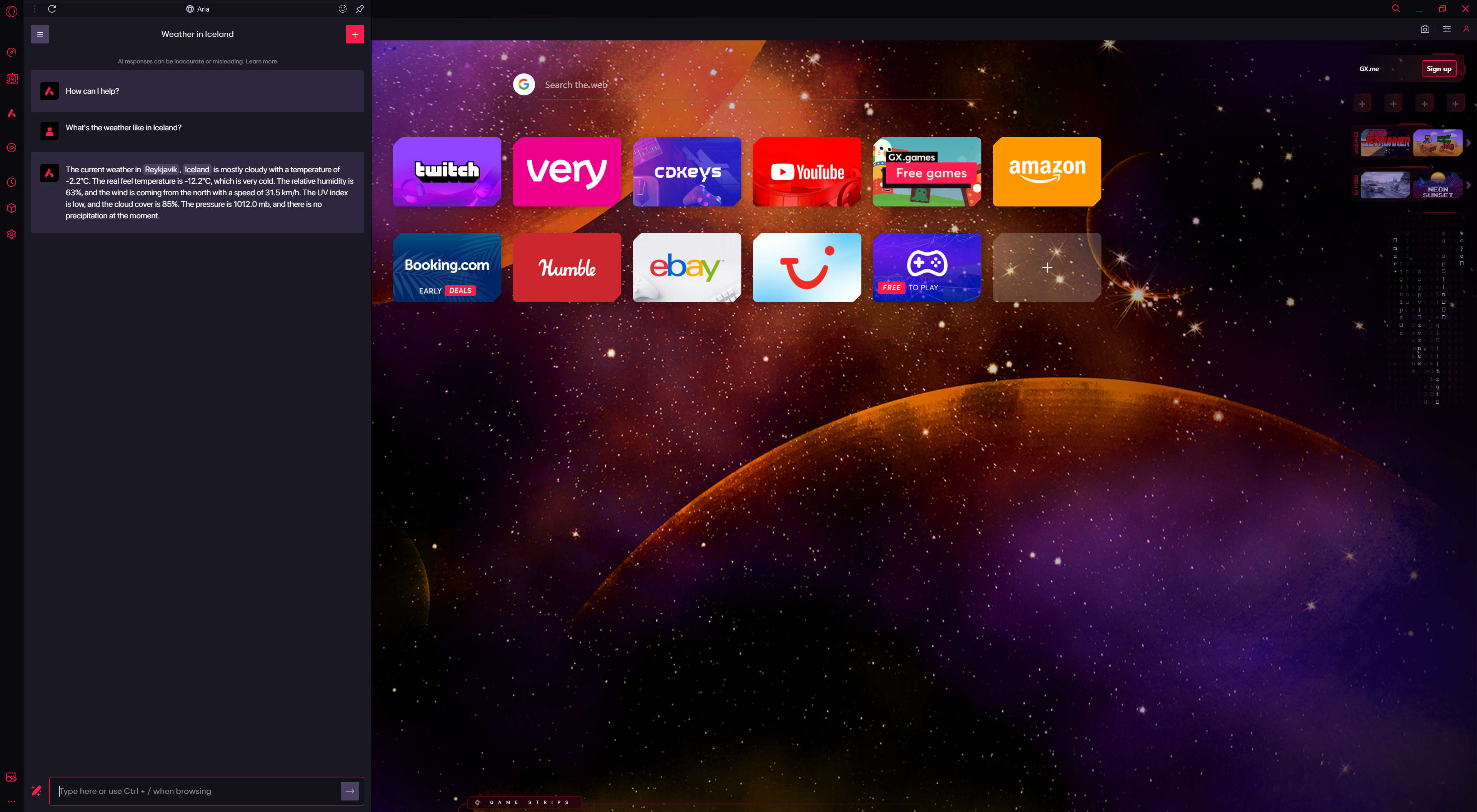When you picture Nvidia and AI together, how often do you include Iceland and web browsers in the same image? If you’re like me, then probably never, but there’s a first time for everything and that’s what Opera has announced today: It’s very own Nvidia DGX SuperPOD cluster, based entirely in Iceland, for handling requests from the Aria AI feature in the Opera One and Opera GX browsers.
Opera announced the project in its Browser Day event, held in Oslo last week, where it gave some insight into the decision to purchase its own AI server, to work alongside those that it hires and shares with other partners. The DGX SuperPOD is powered by the H100, a GPU-esque processor built on Nvidia’s Hopper architecture.
Utterly useless for graphics but a veritable powerhouse for crunching through machine learning algorithms and probably the most in-demand superchip on the market right now.
So, what exactly does Opera need this for? The long-standing browser developer added a generative AI component to its Opera One and GX platforms last year, and plans to continue expanding the integration of Aria into more aspects of using the browser.
I’m sure this news will make some of you groan, thinking that we don’t need more AI things built into our everyday software. However, as we’re very much in the year of the AI PC, Opera’s hands are pretty much forced. Everyone else is doing it, so the developers are damned if they, damned if they don’t.
Fans of generative AI will no doubt appreciate the fact that this new server is designed to run small-scale models, specifically focused on improve browser usage and experiences, rather than just being another ChatGPT system. On the other hand, if this whole AI thing isn’t floating your boat, then at least it’s something you can choose not to use.
As to the location of the new AI server, the location may seem rather odd, as Iceland isn’t exactly the most conveniently located country, in terms of ease of access.
However, it does have lots of low carbon energy on tap and the overall climate lends itself particularly well to running large compute clusters. The cool air negates the requirement for masses of air conditioning, for example, helping to reduce operating costs.
Opera isn’t the only company implementing AI in its browser. Microsoft has Copilot in Edge, of course, but you’ve also got the likes of Brave and Arc Max sitting in the generative AI bandwagon, though the latter is yet to have a Windows version. And you can bet your last dollar that Google and Apple will follow suit in time.
Tipping the karma balance in Opera’s favour is that it plans to open up the SuperPOD cluster to European and US researchers at some point in the future, although the exact details of how all this will work has yet to be announced.




